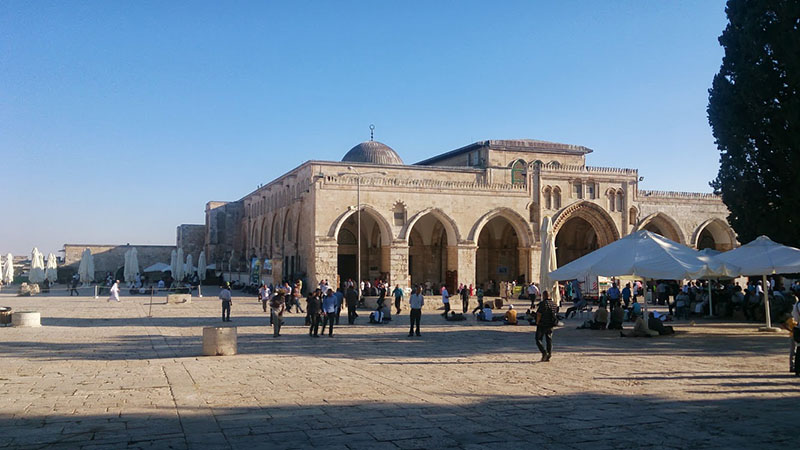Why is the Jerusalem Question So Controversial?
The Middle East in chaos. Hamas declares an Intifada, or Armed Uprising, against the United States and Israel. 128 nations at the UN vote in favor of a resolution condemning the United States. All this has come about due to a declaration the Trump administration has declared as “a recognition of the truth.”
This declaration, made by President Trump in December, was to move the U.S. embassy to Israel from its current location of Tel Aviv to Jerusalem. Immediately allies and rivals of the United States alike said the decision would throw the Middle East into more chaos than it currently experiences due to the Cold War between Iran and Saudi Arabia and the presence of terror groups like Hezbollah and ISIS.
Jerusalem is a city that is holy to all the three main monotheistic religions: Muslims believe this city is one of the holy sites the Prophet Muhammad (SAW) visited on his Night Journey, Jews believe this city is the Holy Land promised to the Jews by God, and Christians believe that Jesus was born in Jerusalem, and take pilgrimages to Jerusalem each year. Jerusalem is an integral part of each of these religions, explaining the fear of Palestinians that when Trump declares Jerusalem as the capital of Israel, he is saying that only Jews have a right to the city. This may be a bit of a stretch, as Trump never explicitly stated anything of the sort in his speech to the American people in which he made the declaration.
However, there may be more to this issue that can be seen at the surface. In 1947, when Israel was formed from a chunk of Palestine as a safe haven for Jews who had suffered at the hands of the Nazis, Muslims and Jews lived peacefully for some time side by side in a land regarded holy by both Muslims and Jews. Eventually, the state of Israel was formed and Israelis and Palestinians shared Jerusalem, with Israel getting West Jerusalem and the Palestinians keeping East Jerusalem. However, tensions soon escalated between Israel and the Arab world when Israel conquered the Sinai Peninsula due to trade disputes. The ensuing Six-Day War saw the Arab nations of Syria, Jordan, and Egypt invade Israel in retaliation and the subsequent counterattack of the Israelis, leading to Israeli gains, including Jerusalem. The treaty following the Six-Day War returned all the land lost by the Arabs back to their respective nations but let Israel keep Jerusalem, splitting Palestine into two separate territories: the West Bank and Gaza.
This loss of Jerusalem greatly insulted the Muslim-majority Palestinians, and they soon put up resistance. The Palestinian-Islamic political and militant organization Hamas soon took over the Gaza Strip and started conducting terrorist acts and Intifadas (Armed Uprisings) against Israel for what it called “the oppression of the Palestinian people.” One of the main causes for this organization being formed was most definitely the loss of Jerusalem to Israel. Israel has also heightened tensions by invading the Gaza Strip several times, killing innocents along the way, and also at one point, blocking Palestinians from attending prayer at the Al-Aqsa Mosque in Jerusalem (the third holiest site in Islam).
The Jerusalem question is complicated, and Trump’s decision does not change that. It now becomes a matter of asking ourselves whether this decision will lead to a speedier peace process, or the further deterioration of a tumultuous region.





